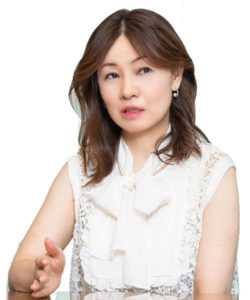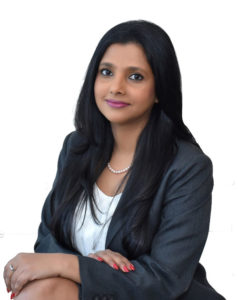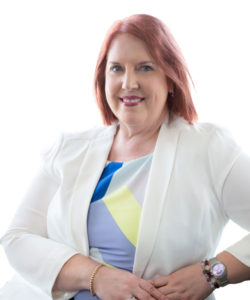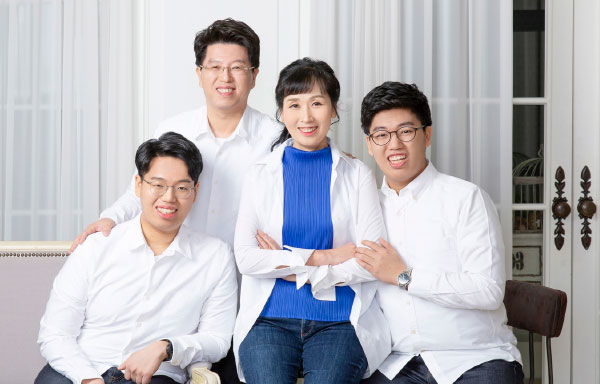Senior women lawyers across Asia share personal stories of successes, struggles and strategies for a more inclusive legal profession. Vandana Chatlani reports
The women profiled in this article have worked in-house, in private practice, in court and in the judiciary. They also share another common factor – seniority. To see women lawyers in positions of leadership in Asia is inspiring, but perhaps misleading to some extent, as they do not represent the norm.
In 2016, Grace Yeoh was the first woman in 100 years to be appointed managing partner at Shearn Delamore in Kuala Lumpur; Singapore-based Rebecca Chew was the first woman in Rajah & Tann’s history to hold the deputy managing partner position; and last year, Melissa Kaye Pang became the first women president of the Hong Kong Law Society in its 110-year history.
Although these are exceptional achievements, the fact that we are still counting and celebrating firsts suggests that the profession needs to do more to create a new narrative where women leaders are no longer a rarity.
“Unfortunately, very little has changed,” says Lin Shi, president of the Association of Corporate Counsel in Hong Kong. “There’s a lot of rhetoric and a lot of events focusing on diversity programmes. But when it comes down to it, what kind of accommodations are you providing? What kind of incentives are you giving to male staff to shoulder their half of the housework and caregiving? Until that happens, this work will still fall upon women.”
Before analyzing the experience of women lawyers in Asia, it is crucial to acknowledge their diverse, complex and multiple realities in a region divided by language, economics, politics, history, religion, geography, tradition and sociocultural codes.
The different trajectories in terms of legal sector development across Asia also affect opportunities for women.
“Myanmar was in the dark for so many years and sanctions were only lifted recently, so there’s a gap in terms of lawyers,” says Hanim Hamzah, the regional managing partner of Zico Law Network. “At some point they only had lawyers in their 60s and 70s, because for a long time there were no law schools under the military junta government. So it’s not just gender, but the availability of talent that’s an issue.”
Brunei provides another example where opportunities for women are slim because of political and cultural norms. “The Bruneians are generally well-educated and want to participate, but the market is small,” says Hamzah. “It’s a population of 400,000 people. Of that, 200 are lawyers; 100 work for the sultan and only 100 go to private practice. Most of those involved are men, maybe because of issues relating to [Brunei] being an Islamic state.”
Despite these and other dramatic differences, there are commonalities and universal themes that unite women lawyers in Asia and around the world.
Women increasingly make up the majority of new entrants within the legal profession in Asia. But as is the case beyond the region, too few find their way to partnerships. In many cases, this speaks more about workplace policy than unequal opportunity.
“I think all law firms in Asia and in the West are grappling with the same problem – how to retain women talent,” says Zia Mody, the managing partner at AZB & Partners in Mumbai. “Everyone has gone beyond the point of hiring women. They are valuable. The question is how many have really finessed the conversation with women on how to keep them.”
“From an in-house perspective, organizations need to understand both what draws women to in-house roles and why some women leave these positions,” says Tanya Khan, vice president and managing director for Australia and Asia-Pacific at the Association of Corporate Counsel, Australia. “Companies must implement policies and programmes to attract and retain them.”
“I think if you’re small enough, which we are, the solution is pretty much bespoke,” says Mody. She has conversations with new mothers individually to figure out their requirements and how these can fit in at the firm. “When there is proper expectation setting, you see everyone fall in line including all the male partners.”
Arfidea Saraswati, a founding partner at Akset Law in Jakarta, says her firm introduced an extra three months of unpaid maternity leave (on top of the mandatory three months of paid leave) because she demanded the same after having her first child while at her former firm. “Your child becomes your number one client,” says Saraswati. “I told them I would resign if I didn’t get the extra time off. They gave it to me and it became a precedent.”
At Akset, female employees who are having a child or getting married are not required to stay later than 5:30pm, work weekends or travel for the first year unless they wish to do so. “We understand that the first year is the busiest for a new mum,” she says. Her colleagues have discussed other policy measures, such as unpaid paternity leave, which the firm also plans to consider.
Cultural codes and stereotypes
Many of the lawyers profiled expressed frustrations with existing stereotypes of women, and discussed desires to change cultural expectations of women within and outside the workplace.
In most parts of Asia, women who work are stilloften required to bear domestic, childcare and other familial responsibilities almost entirely. “They routinely have to balance both equally,” says Mumbai-based Jagriti Bhattacharyya, chief counsel of Thomson Reuters. “In India we need more awareness and affirmative action to change the mindset and recognize that women are expected to manage domestic responsibilities unlike a lot of their male colleagues.”
Such deep-rooted views mean that while women have been empowered to some degree, gender roles are still largely set in stone. “China is a complete paradox,” says Shi. “You had Mao [Zedong] proclaim that women hold up half the sky and can do anything, but at the same time you also have a very feudal mentality that deems housework, cooking and caring for the elderly and the young to be women’s work.”
This view of a women’s duties can sometimes extend to the tasks they are given in the workplace. “When I was a junior associate, I was expected to be helpful and felt social pressure to volunteer for ‘office housework’,” says Phuong Nguyen, the managing partner at Zico Law in Vietnam. “Firms are more likely to assign women to these tasks, because women are more likely to agree to perform them.”
Some lawyers question whether workplace policies are enough to shift such entrenched views about a woman’s worth, place and individual identity in societies where they have historically been treated as subservient, second-class citizens.
Miki Sakakibara, president of the Japan In-house Lawyers Association, points out that Japan’s public registration system mandates by law that women take their husband’s name after marriage. Similarly, despite existing sex discrimination laws in Hong Kong, married women cannot give a child their own name. “How do you explain that my child has to have my husband’s surname?” asks Shi. “The government has to be consistent in its messaging. [Changing such laws] would be a very public message by the government saying I am holding both sexes equal.”
Partnerships and progress
Although the quest for gender parity continues, there are undoubtedly signs of progress. In many cases, women today enjoy more freedom from societal norms and have greater agency in determining their priorities and shaping their future.
“In the past few decades, we have seen the diversification of the legal profession,” says Bhattacharyya. “In-house roles have become more attractive, intellectually stimulating, professionally fulfilling and financially rewarding. With the legal sector opening up the way it has … there are now more opportunities for women to be in the profession.”
“There is definitely some aspiration for an improved work-life balance, but it’s more about time for yourself than starting a family,” says Audray Souche, managing director of DFDL Thailand. “I see that very strongly and it’s very specific to Thailand. I don’t think there’s any conscious career consideration, it’s more about a generation which is very focused on enjoying the current moment.”
In addition, the MeToo movement has forced a restructuring of social relations between men and women, leading to a greater awareness of the need for equality and respect. And government policies such as “womenomics”, a campaign by Japanese president Shinzo Abe to have women in 30% of leadership roles by 2020, offer further fuel towards gender parity goals.
Many lawyers stress the need for solidarity, sisterhood, mentorship and sponsorship. As women take on new positions of power within the legal industry, they gain the chance to disrupt patriarchal structures, introduce fairer policies, become role models and improve prospects for younger women lawyers.
The following mosaic of personal stories identifies some of the nuances that typify women’s experiences in particular Asian jurisdictions, while also drawing on the wealth of shared experiences that bind them.
MIKI SAKAKIBARA, JAPAN IN-HOUSE LAWYERS ASSOCIATION
Stepping out of your comfort zone
Women must take a leap of faith to seize leadership opportunities and rally against traditional cultural codes
“Ever since I was a young girl, I’ve found it difficult to watch women being treated in an inferior or unequal manner. From then on, I have been passionate about fighting against gender discrimination.
When I became a lawyer 20 years ago, I was one among only 12% of women. Today in Japan, 20% of lawyers are women and in-house, women make up 40% of lawyers.

President
Japan In-House Lawyers Association
In the US, I’ve heard that clients are demanding law firm diversity, not just in terms of more women, but more representation from other minorities such as the LGBT community. It would be ideal if clients in Japan demanded the same, but they themselves have not diversified yet, so they can’t expect others to do so. First, we have to change our companies from the inside.
Fortunately, Japanese Prime Minister Shinzo Abe’s ‘womenomics’ campaign is geared towards seeing women fill 30% of leadership positions by 2020. As a result, you find many high-ranking women in government these days. Private entities, however, continue to lag behind.
Things are slowly changing because of corporate governance pressure. Many companies have decided to appoint outside directors and they tend to choose woman lawyers. That is progress, but one woman out of 15-20 board members is not enough.
Across Japanese companies and law firms, the situation is more or less the same. There are not enough women. Foreign companies and law firms are much further ahead.
Gender diversity is my first priority, but I believe you have to hold a position of power to make a bigger impact. Before I became president of JILA [Japan In-house Lawyers Association], women comprised only 10% of board members. Now, we have a total of 40% – an accomplishment of which I’m very proud. Each time I have a chance to visit the Bar Association, I remind them of JILA’s statistics so they feel pressured to follow our example.
There are other related issues such as the pay gap, but I think redressing the imbalance of men and women is of prime concern. If women make up at least 30%, it will strengthen our voices and give us real decision-making power.
Most women have domestic and childcare responsibilities, so they cannot commit the same amount of time to work as their male counterparts. They often have to leave the office earlier and this impacts the results they can deliver. As long as law firms continue to use billable hours, women will struggle and are unlikely to become partners. This challenge is not confined to the legal profession.
Our cultural values also create barriers for women. Girls are generally raised to be quiet, step down and have fewer experiences with regard to leadership and speaking up, even within the family. So it starts from a really early age. We are trained that way. Men and boys have been raised differently. Even at kindergarten and in elementary schools, teachers expect boys to assume leadership roles, or be head of the class. As a woman, you don’t get that practice.
Recently, I was elected as an independent director of a company, and that was good news, but I felt I hadn’t been trained for that role. I accepted the position because I knew it was a good opportunity. I advise young JILA members, especially young women lawyers, to speak up and seize opportunities, even if they don’t feel comfortable doing so. Sometimes we have to remind ourselves to be assertive and confident.
If you’re a young woman lawyer at a company, you could feel isolated in an environment dominated by men. However, at JILA, women can participate in our diversity group, giving them a chance to interact with and emulate different role models.
Women lawyers sitting on JILA’s board can become high-level decision makers even if they don’t yet hold those positions at their companies. They can use JILA as a platform to advance and get training. It’s only one organization, but it can help many.”
JAGRITI BHATTACHARYYA, THOMSON REUTERS, MUMBAI
Creating a nurturing ecosystem
A shift in sociocultural dynamics requires respect, role models and institutional responsibility
“The gender-based challenges women lawyers face are not specific to the profession. These challenges emanate from sociocultural and economic factors that exist across other professions. The only difference is that India has a law around sexual harassment, so lawyers have a better understanding of their own rights. But it’s still never easy to speak up, no matter how emboldened you are. Just because one is a lawyer doesn’t change anything. The apprehension and the journey remain the same.
The hesitation to report harassment emanates from seeing how some of these issues blow up. When you look at all the #MeToo callouts that have happened, you see the backlash against complainants. It’s a huge emotional effort to be willing to endure that.

Chief counsel
Thomson Reuters, Mumbai
Even with the legal framework that exists, there is a social, cultural impact that one has to be prepared to face. There are perceptions at play with people forming opinions and passing judgments. All of that is challenging to deal with.
The sexual harassment law is a deterrent akin to laws that prohibit drunk driving. It doesn’t mean there are no incidents of drunk driving, but the number of incidents reduce. It has raised awareness levels, and that itself is a big step towards changing social dynamics in the workplace in a better way.
I was always very aware of my gender as an in-house counsel in the banking and finance industry, because often I was the only woman in a room full of suits. In my earlier years, I encountered challenges due to misogynistic behaviour, inappropriate workplace conduct, or mansplaining.
But I think as we grow in our career and gain credibility, we become more assertive. The behaviour doesn’t stop, but we become better equipped to deal with it.
I see a change in behaviour, but I don’t know if it is because the world has truly evolved, or because I have moved up the leadership chain now.
It’s important to build credibility, and that can only come with being the best version of yourself at work, and giving it 100%. It’s also vital to create a network of mentors, officers and buddies that provide a bulwark for the tough times. For younger women at work, having a mentorship arrangement with guidance, support and encouragement from seniors will go a long way.
Recognizing the significance of women in the workforce, and how crucial they are to the economy, will help create an ecosystem that gives women greater support to help them succeed at work. There has been some progress empowered by laws in India to provide crèches, paternity leave, increased maternity policy, etc., but all of that needs a social, cultural, nurturing evolution.
It’s about women being there for other women, whether at the workplace or in your family. And women raising strong men and strong women. What we see at home often translates to how we are in the workplace. We need to create an ecosystem that changes age-old values. It has definitely improved a lot from a prior generation, but we still have a long way to go. I have friends and colleagues who are fantastic fathers and a great source of support for their wives. I see them more involved in raising their children and participating in responsibilities at home. I don’t think we should paint everybody with the same brush. We just need more men like that.”
CATHERINE O’CONNELL, CATHERINE O’CONNELL LAW, TOKYO
Male champions & best practices
Why men should be part of the quest for women’s empowerment in Japan
Catherine O’Connell has worked as a lawyer in New Zealand, London and Japan. She practised law in Japan, both in-house and in private practice, for 16 years before launching her own law firm in Tokyo a year ago. She offers companies and in-house teams legal assistance on a part-time, contract or bridging basis.
“I felt very different in London, compared to Japan. As soon as I speak, I’m obviously not a Londoner, or English. I was seen as being from the antipodes and colonies. That is how some people viewed me, to be perfectly honest. It was very hard to get into the inner circle because I didn’t speak their language.

Founder
Catherine O’connell Law, Tokyo
In contrast, in Japan, when I say I am a lawyer, people immediately respect me. And because I do speak the language, I haven’t faced any discrimination. I never felt that I was supposed to get the tea, or clear up after a meeting – I simply haven’t had that. I know people have experienced that here in other roles, but in the legal profession you’re very much respected, even as a foreign female lawyer.
I think it’s different for Japanese women who are lawyers, because there is still pressure to leave your workplace after you have a child. While I was head of legal in-house at a Japanese company, I struggled to find anyone who could come in for a few months or on a temporary basis when members of my team left.
I thought, there must be people who have had babies, who are looking after elderly relatives, or are on leave who could help me remotely, or come to the office for a few hours, but I couldn’t find that pool of talent. I think my business model would be attractive for women lawyers taking a break from full-time work – and men too, although parental leave is still mostly taken by women.
I think many inequalities, such as unequal pay, lie outside the legal profession because lawyers are astute and aware of what’s going on, so they pay pretty equally. There tends not to be the disparity you would most definitely see in other places in Japan. But then again, how many women are at those senior positions? It’s almost like a reward that they are there.
The statistics on female partners is extremely low and that is because motherhood forces them to leave the partnership track, and hinders their chance to secure leadership roles when they return. It’s a generalization, but I don’t think many of my community would dispute that.
Japan is certainly behind other countries in Asia. In terms of overall numbers, women account for less than 20% of all lawyers in Japan, although the levels are healthier in-house, where women make up 40% of the legal workforce.
Having male champions is so crucial for progress. Changes are happening but they are tiny, tiny steps often introduced by a few progressive companies and law firms. I’ve heard of cases where employers are talking openly about career planning for both men and women, but, particularly for women, taking into account the possibility of parental leave at some stage.
Without delving into personal circumstances, these employers are basically saying, ‘You have a place when you come back, and we want you back’. This kind of preparation, where someone is briefed while they are on leave, and supported in a systematic way when they return, is remarkable, firstly because employers are actually discussing it, and secondly because they seem to be implementing it.
Sharing these practices and success stories is vital. Companies, even traditional ones, are finding they can be flexible and innovative with their working models if they give it a go. Challenging people’s ideas is paramount.”
AUDRAY SOUCHE, DFDL, BANGKOK
Role models & representation
Why we need more women in leadership positions
Audray Souche is the country managing director of DFDL Thailand. She has worked in Asia since 2004, becoming a partner in 2014. “I was the only female partner at the firm out of 12, and frankly, being the only female partner was not making any real difference at the time,” she says. “Things started to progress positively later on, and we started to see a lot of positive changes happening. We now have a lot of regional and country female partners across our jurisdictions.”
For the past two years, Souche has sat on the firm’s board of management as one of its four directors. “My voice has become more distinguishable,” she says. “It’s a matter of proportion. I believe if you are here simply being one among many, as a token representative, it’s pointless. However, if you actually represent 20-25%, you have real agency to change a firm’s or company’s culture. It’s not merely about what is visible, but the actual part you have to play in the decision-making process.”

Partner and Thailand managing director
DFDL, Bangkok
Souche believes women bring a different dimension to negotiations, governance and leadership. In terms of promoting lawyers, for example, she will “highlight fairness rather than just focusing on a quantitative assessment”, by analyzing a candidate’s history and all-round performance. “Men have a natural bias towards making assessments in financial or statistical terms. Women can add value by accounting for other important factors beyond purely financial metrics.
“I’m sometimes surprised by the way I’m listened to, and it’s not because I’m a woman, but perhaps because I’m presenting issues in a different manner,” says Souche. “That’s what I’m leveraging as the first woman in this position. It’s really about diversity. New approaches don’t necessarily take hold simply because you’re a woman. For instance, I have a political science background, so I am sensitive to geopolitics and intercultural matters. It’s who you are and the perspectives you bring to bear more than just your gender.”
For Souche, gender has never been a major challenge to overcome despite working in the male-dominated energy sector. “I’m a woman, but before that, I’m a foreigner,” she says. “It’s really secondary. It’s almost like being gender neutral, where being a foreigner prevails over my identity as a woman.” Souche is accustomed to attending meetings where men are in the majority. “Visually you feel the male prevalence because the power sector has historically been male-dominated. Nonetheless, this is changing and women are increasingly becoming more active in the energy sector in Thailand and Singapore.”
Souche has worked tirelessly to create an open dialogue to ensure that young women in her firm feel supported in their roles. Coaching from mentors and seniors, she says, is crucial to guiding juniors in a world where they may often have to work late, travel alone, or stay overnight in provinces or remote areas where due diligence needs to be performed. “You have to ensure that they feel comfortable and constantly nurture their sense of confidence and autonomy,” she says.
She encourages young female lawyers to go beyond excellence in the core legal competencies and strive to enhance their business acumen. “Women often want to implement what they’ve learned at law school, but they must also develop a curiosity and awareness beyond precedents, legal texts and legal techniques,” she says.
“It’s about gaining a deeper knowledge of particular sectors and grappling with the commercial realities of these sectors on a local, regional and global level. Having the capacity to talk confidently and knowledgeably about business matters is an invaluable skill in winning over clients and becoming a trusted and counted-upon adviser.”
KIM SAE YOUN, YULCHON, SEOUL
Alcohol, ambition and life at the bar
A former justice talks about client mistrust and South Korea’s drinking culture
“My family knew I always wanted to be a lawyer, so they were happy when I got into law school. My mum’s friend called to congratulate us, but quickly asked my mum, ‘How will you get her married?’
Back in my day, we had to go through the old Korean Bar, which was extremely difficult. The pass rate was 3%, so only 300 people passed each year. The situation has changed now, with 1,700-2,000 lawyers qualifying annually.

After passing, we had to enrol in the Judicial Research & Training Institute (JRTI), run by the Korean Supreme Court, for two years. Once you get to that stage, you can’t fail. You are guaranteed to become a judge, prosecutor or lawyer.
At JRTI, there were 19 women out of 300. Everyone was good to us, no one tried to discriminate. We were considered colleagues and part of the alumni that would stay together.
I became a judge at 25 and served for seven years before joining private practice. One justice said that women judges should not take criminal cases because they don’t understand what happens when people get drunk, and so their penalties would be too harsh. It was a joke, but that kind of remark was allowed at the time. If the same justice made these jokes now, they would face a lot of trouble.
Nevertheless, while I sat at the bench, no one dared say anything against me based on gender, so I felt the bench defended me in some way.
Day one of my career in private practice was when I realised gender discrimination exists. I had to conduct a witness exam on a 60-year-old man, and when he walked in, he said, ‘Oh my god, she’s a woman. What will she know about the case?’ He was not a professional, sophisticated businessman, so I think he couldn’t help blurting it out. It was a dispute relating to an apartment complex and he was the head of the company managing the apartment. I spoke to him for an hour and convinced him that I knew the case better than the previous lawyer.
The culture of wining and dining with clients is very strong here in Korea. At that time there were no precedents for us to follow, so we thought, to be as successful as men, we had to drink as hard as them! For five years I drank just like any other male lawyer so my colleagues wouldn’t discriminate against me, and to avoid clients saying, ‘She can’t even drink!’
At some point, I thought if I kept drinking I wouldn’t be able to look after my home or do my work properly. I told my clients that I’d stop drinking for eight years until my younger son went to college. They found it amusing, but it was a time when people were used to the idea of mums being hands on in order for kids to go to a good college. So I stopped drinking socially, and devoted free weekends to my children. That’s when I developed a successful international arbitration practice.
I realised I needed courage. Telling everyone I was going to quit drinking was actually a reminder that I couldn’t go back. I think I was telling myself, ‘Don’t be afraid. You won’t lose your career’.”
PHUONG NGUYEN, ZICO LAW, HANOI
Empowered but still fighting
Women make up almost three-quarters of Vietnam’s workforce, but persisting stereotypes and male dominance of senior positions mean equality is still a work-in-progress
“With 72% of women in the workforce, Vietnam falls into the group of nations with the highest percentages of women in the labour pool. The country has also made tremendous strides in developing its legal system on gender equality by amending the constitution and passing the Law on Gender Equality. The constitution, which was amended in 2001, stipulates that ‘all citizens regardless of their sex have equal rights in all respects’ and that ‘any discrimination against women and violation of women’s dignity is prohibited’.
Despite their contribution to the national economy and legislative progress, women still encounter numerous barriers and challenges to employment equality. Although they constitute a large percentage of associates at law firms or legal functions in the private sector, women represent less than 30% of partners and managing partners. In short, female practitioners, and working women in general, are still encumbered by Vietnam’s traditional customs, which require women to handle family responsibilities while holding on to their careers.
You must be a
subscribersubscribersubscribersubscriber
to read this content, please
subscribesubscribesubscribesubscribe
today.
For group subscribers, please click here to access.
Interested in group subscription? Please contact us.



























